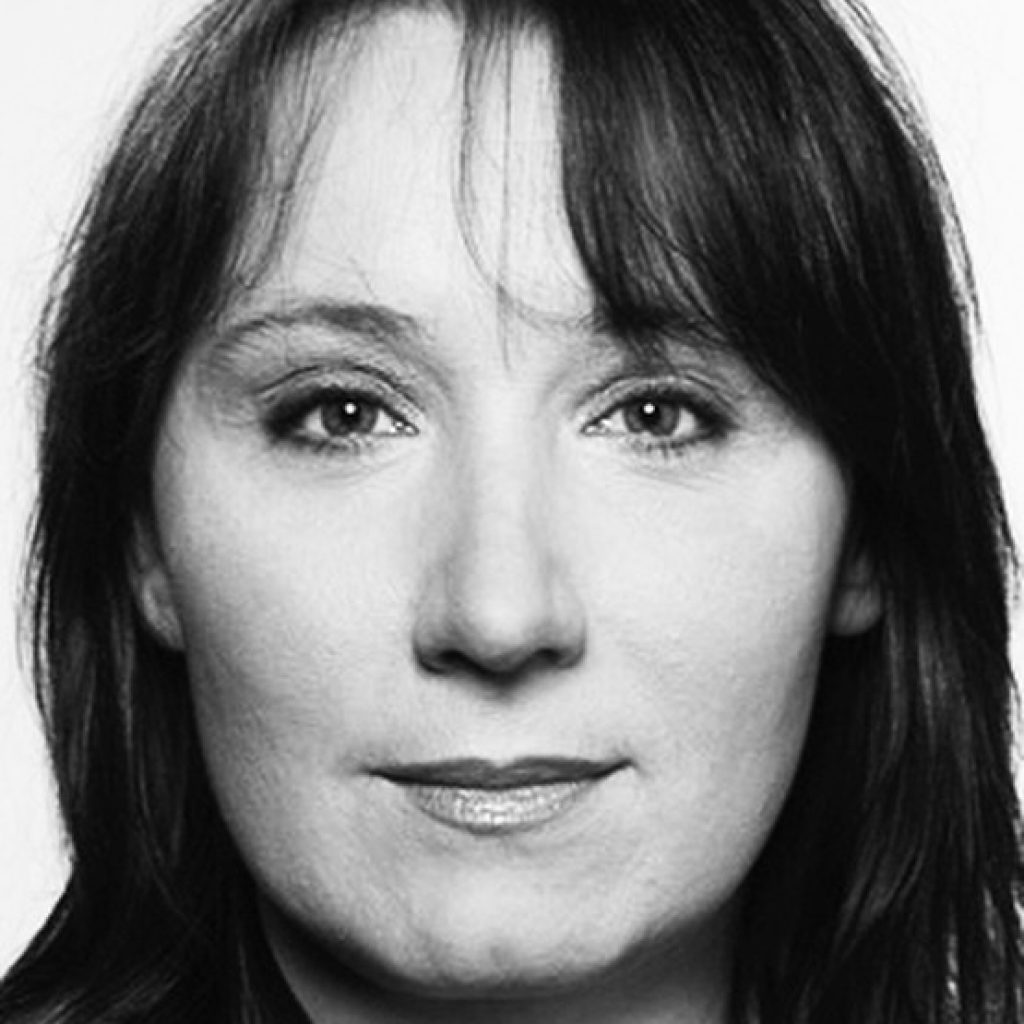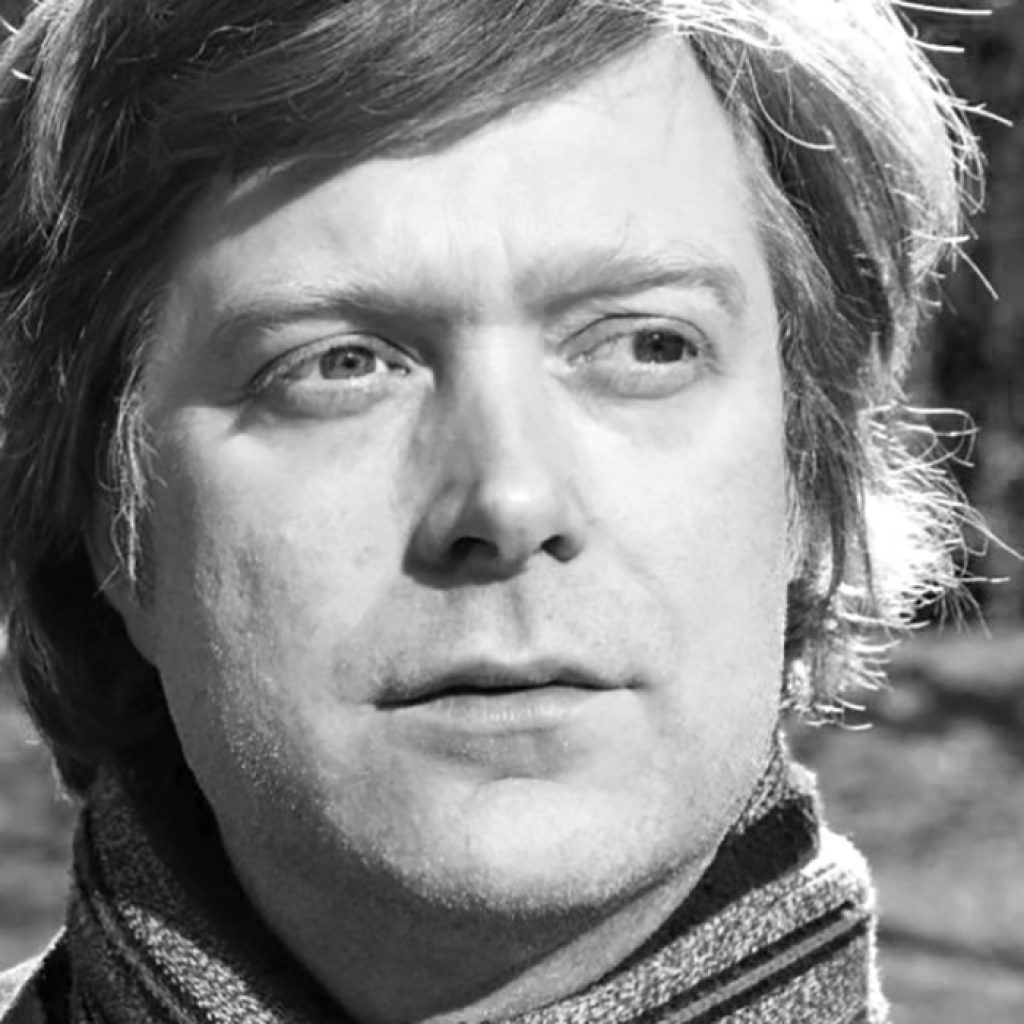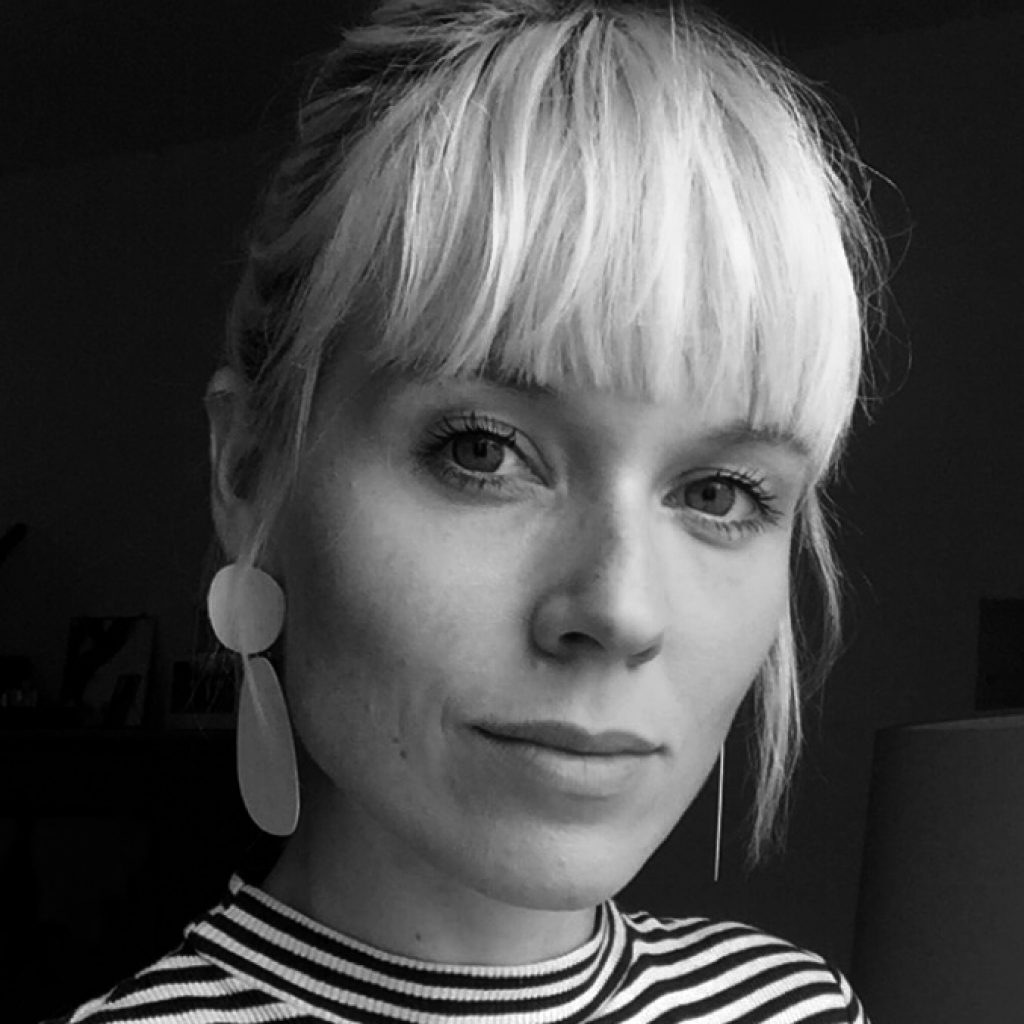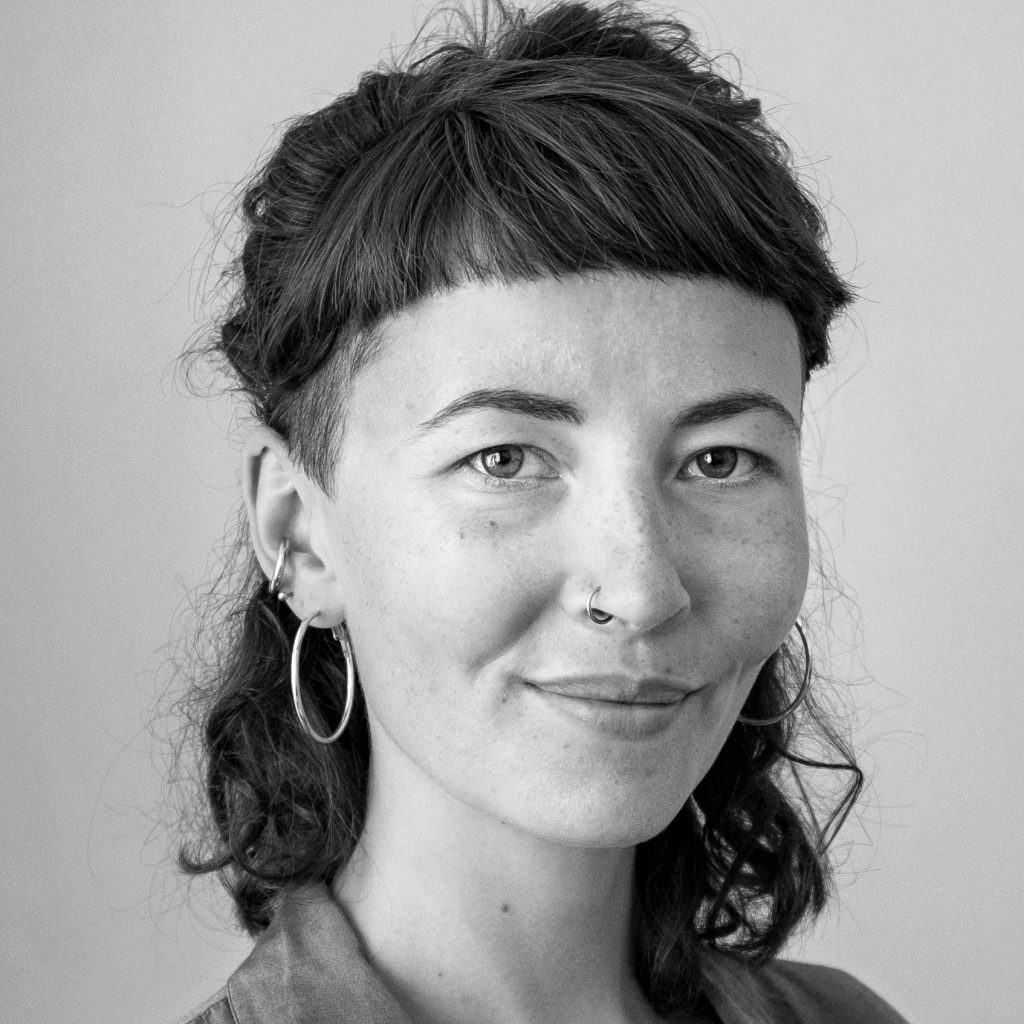Computer Games driving AI& transforming Society
People

Prof. Dr. Markus Rautzenberg
is professor for Philosophy at the Folkwang University of the Arts (Essen). In 2007 he received his doctoral grade in philosophy with a thesis on a »Theory of Pertubation«. Scholarships include: DFGDoctoral Scholarship at the research training group »Körper Inszenierungen« (»The Staging of the Body«), DFG-Postdoctoral Scholarship at the international research training group »InterArt«. He was research fellow at the institute for advanced study at MECS ("Media Cultures of Computer Simulation") and at the Digital Cultures Research Lab (DCRL), both in Lueneburg. From 2009-2015 he belonged to the research and teaching staff at the institute for Philosophy at Freie Universität Berlin where he headed a research project on »Evocation. Non-Visual Aspects of Iconicity« from 2011-2014, funded by the German Research Foundation (DFG). His main fields of research include: media theory, picture theory, philosophy of the 20th century, theory and aesthetics of digital media and ludic epistemologies. He is associated member of the cluster of excellence at »Bild-Wissen-Gestaltung« at Humboldt-University Berlin, head of the »AG-Games« within the »Gesellschaft für Medienwissenschaft« and member of the DFG-Network »Affect- and Psychotechnology-Studies«.
- since 2016 Professor for Philosophy at Folkwang University of the Arts, Essen
- 2016 substituting for Erich Hörl as Professor for Media Cultures at Leuphana University, Lueneburg
- 2015/16 Research-Fellow at DCRL (Digital Cultures Research Lab), Leuphana University, Lueneburg
- 2015 Research-Fellow at MECS (DFG-Institute for Advanced Study »Media Cultures of Computer Simulation«)
- 2011-2014 PI at DFG-Project: »Evokative Bildlichkeit. Zur non-visuellen Macht der Bilder« at Freie Universität Berlin
- 2009-2015 Staff Member at the Institute for Philosophy at Freie Universität Berlin
- 2007-2009 Postdoc-Fellowship at the International Research Training Group »Interart«, Freie Universität Berlin
- 2003-2006 Doctoral Fellowship at the Research-Training Group »The Staging of the Body«, Freie Universität Berlin
- 1996 – 2002 studied Philosophy, German Literature and Theatre Studies
- Framing Uncertainty. Computer Game Epistemologies, Basingstoke, Hampshire 2018 (imErscheinen)
- Die Gegenwendigkeit der Störung. Aspekte einer postmetaphysischen Präsenztheorie, Berlin-Zürich 2009
- Spiegelwelt. Elemente einer Aisthetik des Bildschirmspiels, Berlin 2002
- (Hg. mit Juliane Schiffers), Ungründe. Perspektiven prekärer Fundierung, Parderborn 2016
- (Hg. mit Andreas Wolfsteiner), Trial and Error. Szenarien medialen Handelns, Paderborn 2014
- (Hg. mit Benjamin Beil, Philipp Bojahr, Thomas Hensel, Stephan Schwingeler, Andreas Wolfsteiner: I AM ERROR. Störungen des Computerspiels, Siegen: Universi 2012 (= Navigationen. Zeitschrift für Medien- und Kulturwissenschaften, Heft 2/2012)
- (Hg. mit Andreas Wolfsteiner), Hide and Seek. Das Spiel von Transparenz und Opazität, München 2010
- (Hg. mit Kristiane Hasselmann und Erika Fischer-Lichte), Ausweitung der Kunstzone. Interart Studies – Neue Perspektiven in den Kunstwissenschaften, Bielefeld 2010
- (Hg. mit Joachim Küpper und Regine Strätling), The Beauty of Theory. Zur Ästhetik und Affektökonomie von Theorien, München 2013
- (Hg. mit Kyung-Ho Cha), Der entstellte Blick. Anamorphosen in Kunst, Literatur und Philosophie, München 2007
- »Blendungen. Fotografische Selbstvergewisserung im Film«, in: Sybille Krämer, Sibylle Schmidt (Hg.): Zeugen in der Kunst, Paderborn 2016
- Fabian Goppelsröder und Markus Rautzenberg (2016): Bateson und das Computerspiel. Ein Gespräch über das Phantasma der Berechenbarkeit, in: Junge, Thorsten/Clausen, Dennis (Hg.): Digitale Spiele im Diskurs. URL: www.medien-im-diskurs.de
- »Navigating Uncertainty. Ludic Epistemology in an Age of New Essentialisms«, in: Mathias Fuchs (Hg.), Diversity of Play, Lüneburg 2015
- »Es ist jedes Mal ein Neu-Anfang«, in: Paideia. International Philosophical Journal Vol. 2 Spring 2014: Conference Proceedings: Perspektiven nach der Postmoderne, Heidelberg 2014.
- »Die Empfindung eines Objekts als Beobachtung ausgeben. Das Haiku als ›Sprachfotografie‹ bei Roland Barthes und Andreij Tarwoskij«, in: Kodikas/Code. Ars Semiotica. An international Journal of Semiotics, Themenheft: Die Sinnlichkeit der Zeichen – Roland Barthes’ Aisthetik von Schrift und Bild, Tübingen 2014
- »Caves, Caverns & Dungeons. Zu einer speläologischen Ästhetik des Computerspiels«, in: Benjamin Beil (Hg.), New Game+. Neue Perspektiven der Game Studies, Bielefeld 2015
- »Transformatio Energetica«, in: Fabian Goppelsröder, Martin Beck (Hg.), Sichtbarkeiten 2: Präsentifizieren: Zeigen zwischen Körper, Bild und Sprache, Berlin-Zürich 2014
- »Inhabiting Pictures. Possessive Bildlichkeit und die ›Pest der Phantasmen‹«, in: Martina Baleva, Ingeborg Reichle, Oliver Lerone Schulz (Hg.), Image Match. Visueller Transfer, ›Imagescapes‹ und Intervisualität in globalen Bildkulturen, München 2012
- »Evokation. Zur non-visuellen Macht der Bilder – Eine Forschungsskizze«, in: Julian Hanich, Hans Jürgen Wulff (Hg.), Auslassen, Andeuten, Auffüllen. Der Film und die Imagination des Zuschauers, München 2012
- (zus. Mit Andreas Wolfsteiner), »Einleitung«, in: Benjamin Beil/Philipp Bojahr/Thomas Hensel/Stephan Schwingeler/Markus Rautzenberg/Andreas Wolfsteiner: I AM ERROR. Störungen des Computerspiels, Siegen: Universi 2012 (= Navigationen. Zeitschrift für Medien- und Kulturwissenschaften, Heft 2/2012)
- (zus. mit Regine Strätling), »Einleitung«, in: Joachim Küpper, Markus Rautzenberg, Mirjam Schaub, Regine Strätling (Hg.), The Beauty of Theory. Zur Ästhetik und Affektökonomie von Theorien, München 2013
- »Unzuhanden. Wie Computerspiele aufsässig werden«, in: Benjamin Beil/Philipp Bojahr/Thomas Hensel/Stephan Schwingeler/Markus Rautzenberg/Andreas Wolfsteiner: I AM ERROR. Störungen des Computerspiels, Siegen: Universi 2012 (= Navigationen. Zeitschrift für Medien- und Kulturwissenschaften, Heft 2/2012)
- »Uncanny Valley. Kleine Bildtheorie der Zombiefikation«, in: Michael Fürst, Florian Krautkrämer, Serjoscha Wiemer (Hg.), Untot. Zombies in den Medien, München 2010
- »Coping with the Real: Disturbances as Materialities of Communication«, in: Rune Graulund (Hg.), Desperately Seeking Authenticity. An Interdisciplinary Approach, Kopenhagen 2010
- »Ludische Medialität. Zur ästhetischen Erfahrung im Computerspiel«, in: Regine Strätling (Hg.), Spielformen des Selbst: Das Spiel zwischen Subjektivität, Kunst und Alltagspraxis, Berlin 2012
- »Wirklichkeit. Zur Ikonizität digitaler Bilder«, in: Marcel Finke, Mark A. Halawa (Hg.), Materialität und Bildlichkeit. Visuelle Artefakte zwischen Aisthesis und Semiosis, Berlin 2013
- (zus. mit Andreas Wolfsteiner): „Einführung“, in: Dies. (Hg.), Hide and Seek. Das Spiel von Transparenz und Opazität, München 2010
- »Exzessive Bildlichkeit. Das digitale Bild als Vomitiv«, in: Ingeborg Reichle, Steffen Siegel, Achim Spelten (Hg.), Maßlose Bilder. Visuelle Ästhetik der Transgression, München 2009
- »Resonanzen zwischen Medientheorie und Ästhetik: Medialität als Un-Mittelbarkeit bei Walter Benjamin«, in: Karsten Lichau, Viktoria Tkaczyk, Rebecca Wolf (Hg.), Resonanz. Potentiale einer akustischen Figur, München 2007
- (zus. mit Kyung-Ho Cha), »Im Theater des Sehens. Anamorphose als Bild und philosophische Metapher«, in: Dies. (Hg.), Der entstellte Blick. Anamorphosen in Kunst, Literatur und Philosophie, München 2007
- »Zeichen/Präsenz. Zu einer vermeintlichen Dichotomie«, in: Helga Lutz, Jan Friedrich Mißfelder, Tilo Renz (Hg.), Äpfel und Birnen. Illegitimes Vergleichen in den Kulturwissenschaften, Bielefeld 2006
- »Jenseits medialer Unmittelbarkeit«, in: Grenzen und Schwellenerfahrungen, Sprache und Literatur Band 95, 36. Jahrgang 2005, 1. Halbjahr
- »Vom Rausch(en) des Realen. Zur Geburt des Unheimlichen aus dem Geist des Mediums in Silent Hill 2«, in: Britta Neitzel, Matthias Bopp, Rolf F. Nohr (Hg.), See? I’m real… Multidisziplinäre Zugänge zum Computerspiel am Beispiel von Silent Hill, Münster 2005

Prof. Dr. Gabriele Gramelsberger
is Professor for Theory of Science and Philosophy of Technology at the Human Technology Centre (HumTec) of the RWTH Aachen University. The Human Technology Centre is an interdisciplinary center (philosophy, ethics, sociology, psychology, information science) that aims at supporting technological development and innovation from a human perspective. She is NRW Digital Fellow 2017 (for 2018/2019) for developing her Computational Science Studies Lab funded by the Stifterverband at NRW Ministry of Research. She is associated PI in the “Neuro Inspired Computing” Cluster of Excellence Funding Line proposal aiming at new forms of AI. In 2017 she became a member of the Allianz-Initiative “Information digital” on behalf of the President of the German Research Community. Her research covers topics like the transformation of science in computational sciences, applied logic, philosophy of mathematics, new approaches in research (simulation, big data, machine learning, AI), and epistemology. She has conducted extended case studies on climate modelling (2005 to 2012; in cooperation with the Max Planck Institute for Meteorology and the German Climate Computing Center Hamburg) and on computational and synthetic biology (2008 to 2012). She is currently organizing the panel “The Power of Correlation and the Promises of Auto- Management. On the Epistemological and Societal Dimension of Data-Based Algorithms” for the EASST Conference of the European Association for Science and Technology Studies 2018 (together with Jutta Weber, University of Paderborn) and the panel “Mediatechnicity. Notes on a Concept Between Technosphere and Digital Cultures” for the International Conference on Digital Culture at the Leuphana University Luneburg.
- 2001 PhD in Philosophy, FU Freie Universität Berlin
- 2002 to 2007 Member of the BMBF-Initiative “Science Policy Studies” coordinated by the Berlin Academy of Science (research project on “Computer simulation as new tolls of knowledge production,” FU Berlin)
- 2008 Guest Researcher, MPI Max Planck Institute for Meteorology Hamburg.
- 2009 to 2012 Principal Investigator of the collaborative research project “Embodied Information – Lifelike Algorithms & Cellular Machines. Conceiving and Envisioning Converging Technologies” at the FU Berlin (FU Berlin and Academy of Media Arts Cologne in cooperation with ESRC University of Lancaster and the Institute of Philosophy University of Helsinki.) Funded by the BMBF German Federal Ministry of Research.
- 2010 to 2012 Convenor of the DFG Scientific Network “Atmosphere & Algorithms” (20 researchers from 8 countries), in cooperation with Matthias Heymann, Aarhus University. Funded by the German Research Community.
- 2012 to 2014 Postdoctoral Researcher, Academy of Media Arts Cologne.
- 2015 Habilitation in Philosophy, Department of Social Sciences and History, Technical University Darmstadt, TU Darmstadt.
- 2014 to 2017 Senior Fellow, IKKM Internationales Kolleg fuer Kulturtechnik und Medienphilosophie, Bauhaus University Weimar and Permanent Fellow, DFG-Institute of Advanced Studies Media Cultures of Computer Simulation (MECS), Leuphana University of Luneburg
- 2016 to 2017 Professor of Philosophy of Digital Media (W3), University Witten/Herdecke
- Since 2017 Professor of Theory of Science and Philosophy of Technology (W3), RWTH Aachen University
- Since 2012 Member of the Swiss-German Research Group “Computer Signals. Art andBiology in the Age of the Computer” (Zurich University of the Arts, University of Lucerne, Academy of Science Berlin, RWTH Aachen). Funded by the Swiss National Science Foundation.
- Matthias Heymann, Gabriele Gramelsberger, Martin Mahony (eds., 2017): Cultures of Prediction in Atmospheric and Climate Science: Epistemic and Cultural Shifts in Computer-based Modelling and Simulation, (Routledge Environmental Humanities), London: Routledge/Francis & Taylor.
- Gabriele Gramelsberger (ed., 2015): From Science to Computational Sciences. Studies in the History of Computing and its Influence on Today’s Sciences, The University of Chicago Press / diaphanes: Zurich 2011.
- Gabriele Gramelsberger, Peter Bexte, Werner Kogge (eds., 2014): Synthesis. Zur Konjunktur eines philosophischen Begriffs in Wissenschaft und Technik, Bielefeld: Transcript.
- Gabriele Gramelsberger, Tarja Knuuttila, Axel Gelfert (eds., 2013): Special Issue: Philosophical Perspectives on Synthetic Biology, Studies in History and Philosophy of Biological and Biomedical Sciences, 44(2).
- Gabriele Gramelsberger; Johann Feichter (eds., 2011): Climate Change and Policy. The Calculability of Climate Change and the Challenge of Uncertainty, Heidelberg/Berlin/New York: Springer.
- Gabriele Gramelsberger (2010): Computerexperimente. Zum Wandel der Wissenschaft im Zeitalter des Computers, Bielefeld: Transcript.

Dr. Serjoscha Wiemer
is currently working as Akademischer Oberrat (a.Z.) for Digital Media / Mobile Media at the Paderborn University. In 2011 he received his doctoral grade in philosophy/media studies, ›summa cum laude‹, from the Ruhr-University Bochum with a thesis on the media theory and aesthetics of video games. After his graduation (magister artium, with distinction) he received a DFG-Doctoral Scholarship and became a member of the Research-Training Group »Zeiterfahrung und ästhetische Wahrnehmung« (»Experience of time and aesthetic perception«) at the Goethe University Frankfurt. He worked as a research fellow at the Braunschweig University of Art with a project about »Techniques of Regulation and Strategic Action in popular Computer Games (at the Example of Economic, Military and Planning Simulations)« at the Institute for Media Research (IMF) under superversion of Prof. Dr. Rolf F. Nohr. Since 2011 he is a member of the department of media studies at the Paderborn University. His main fields of research include: game studies, media ecologies, algorithmic media, cultural techniques and ludo-epistemologies. He is an active member of the GfM (Gesellschaft für Medienwissenschaft) and a former member of the DFG Research-Training Group »Automatismen« and of the DFG-Network »Affect- and Psychotechnology-Studies«.
- since 4/2018 Akademischer Oberrat für Digitale Medien und Mobile Media at Paderborn University
- 2011-2018 Akademischer Rat für Digitale Medien und Mobile Media at Paderborn University
- 2006-2011 Research-Fellow at the Institute for Media Research (IMF) at the Braunschweig University of Art
- 2005-2006 Lecturer (media studies) at the Ruhr-University Bochum, at the Braunschweig University of Art and at the Philipps-University Marburg
- 2001-2005 Doctoral Scholarship at the Research-Training Group »Zeiterfahrung und ästhetische Wahrnehmung« (»Experience of time and aesthetic perception«), Goethe University Frankfurt
- 1994-2001 Magister Artium (with distinction), Ruhr-Universität Bochum (Theater-, Filmand Television Studies, German Linguistics and Social Psychology)
- Das geöffnete Intervall – Medientheorie und Ästhetik des Videospiels. Paderborn u.a. 2014: Fink.
- Diskurse des strategischen Spiels. Medialität, Gouvernementalität, Topografie (co-edited with Stefan Böhme & Rolf F. Nohr). Münster u.a. 2015: LIT, Reihe Medien’Welten.
- Sortieren, Sammeln, Suchen, Spielen. Die Datenbank als mediale Praxis (co-edited with Stefan Böhme & Rolf F. Nohr). Münster u.a. 2012: LIT, Reihe Medien’Welten.
- Shooter. Eine multidisziplinäre Einführung (co-edited with Matthias Bopp & Rolf F. Nohr). Münster u.a. 2008: LIT, Reihe Medien’Welten.
- Strategie Spielen. Medialität, Geschichte und Politik des Strategiespiels (co-edited with Rolf F. Nohr). Münster u.a. 2008: LIT, Reihe Medien’Welten.
- Mimikry. Gefährlicher Luxus zwischen Natur und Kultur (co-edited with Andreas Becker, Martin Doll & Anke Zechner). Schliengen 2007: Edition Argus.
- Affekte. Analysen ästhetisch-medialer Prozesse. Mit einer Einleitung von Mieke Bal (co-edited with Antje Krause-Wahl & Heike Oehlschlägel), Bielefeld 2006: transcript.
- Präsenz, Wiederholung, Unterbrechung. Aporien der Echtzeit im Computerspiel. In: Brössel, Stephan/ Kaul, Susanne (Hrsg.): Echtzeit im Film. Konzepte – Wirkungen – Kontexte. Paderborn 2019: Fink (im Druck).
- Algorithmische Bildästhetik der Störung: Glitches zwischen Metasignifikation und affektiver Materialität. In: Technobilder. Medialität, Multimodalität und Materialität in der »Technosphäre«. Darmstadt 2019: Büchner, S. 132-157.
- Der Schachtürke. Puppe, Black Box, Automatenphantasie. In: WEFT 5 (2018), S. 73–81. (Online: http://groups.uni-paderborn.de/weft/downloads/magazine/Weft_Nr.5_Puppe.pdf)
- Zeit. Ein Schlüsselbegriff für die Computerspielforschung. In: Beil, Benjamin/ Hensel, Thomas/ Rauscher, Andreas (Hrsg.): Game Studies. Wiesbaden 2017: Springer, S. 27-45.
- Videospiele als Zeitkristallisationsmaschinen. Aspekte einer temporalen Bildtheorie. In: Grabbe, Lars/ Rupert-Kruse, Patrick/ Schmitz, Norbert (Hrsg.): Bildverstehen. Spielarten und Ausprägungen der Verarbeitung multimodaler Bildmedien. Darmstadt 2017: Büchner, S. 136-161.
- Von der Matrix zum Milieu. Zur Transformation des Entscheidungsbegriffs zwischen homo oeconomicus und evolutionärer Auslese. In: Conradi, Tobias/ Hoof, Florian/ Rolf F. Nohr (Hrsg.): Medien der Entscheidung. Münster u.a. 2016: LIT, Reihe Medien’Welten, S. 23-46.
- Niemandes Spiel? Zur Aufteilung des Spielbegriffs oder: Die Schwierigkeit, die spielende Maschine zu denken. In: Deuber-Mankowsky, Astrid/ Görling, Reinhold (Hrsg.): Denkweisen des Spiels. Wien u.a.: Turia + Kant 2016, S. 155-170.
- Dildoplay und Sharing Porno – Vine und die sexuelle Revolution 2.0. In: Hüls, Christian/ Lettenewitch, Natalie/ Zechner, Anke (Hrsg.): Die Körper des Kinos. Für eine fröhliche Filmwissenschaft. Frankfurt a.M., Basel 2015: Stroemfeld, S. 276-290.
- Bildberührungen. Elektronische Bilder zwischen Teilhabe und Überwachung. In: Bilder, die bewegen, forum Erwachsenenbildung 3, 2015, S. 26-29.
- Strategiespiele und das Medium-Werden des Computers. Computerschach als Faktor der Rekonzeptionalisierung des Computers als programmierbare Maschine zwischen 1945 und 1960. In: Böhme, Stefan/ Nohr, Rolf F./ Wiemer, S. (Hrsg.): Diskurse des strategischen Spiels Medialität, Gouvernementalität, Topografie. Münster u.a. 2015: LIT, Reihe Medien’Welten, S. 83‑112.
- Strategie Spielen. Zu den Ergebnissen des Forschungsprojekts. In: Böhme, Stefan/ Nohr, Rolf F./ Wiemer, S. (Hrsg.): Diskurse des strategischen Spiels Medialität, Gouvernementalität, Topografie. Münster u.a. 2015: LIT, Reihe Medien’Welten, S. 7-18.
- »I’ll show you the results of my training.« Aspekte medialer Verkörperung im Kampfsportspiel Virtua Fighter. In: Paidia. Zeitschrift für Computerspielforschung. PAIDIA-Sonderausgabe zum Thema »Gender in Games and Gaming«. 15. Dez. 2014. Online: http://www.paidia.de/?p=4766.
- Rewriting the Matrix of Life. Biomedia Between Ecological Crisis and Playful Actions (gemeinsam mit Christoph Neubert). In: Vagt, Christina/ Sprenger, Florian (Hrsg.): Afterlife of systems. communication+1, Volume 3, 2014.
- Materialien zur Quantenkommunion (gemeinsam mit Harald Hillgärtner). In: Adelmann, Ralf/ Bergermann, Ulrike (Hrsg.): Das Medium meiner Träume. Hartmut Winkler zum 60. Geburtstag. Berlin 2014: Verbrecher Verlag, S. 51‑76.
- Kulturtechnik Unternehmensplanspiel. Eine medien- und kulturwissenschaftliche Annäherung (gemeinsam mit S. Böhme, T. Conradi und R. F. Nohr). In: Zürn, Birgt/ Schwägele, Sebastian (Hrsg.): Planspiele – Erleben, was kommt. Stuttgart 2014, S. 163‑178.
- 8 faule Bilder (gemeinsam mit Anke Zechner). In: Daumenkino. Ausgabe zum Schwerpunktthema »Faulheit«. 13. Nov. 2013. Online: http://dkritik.de/schwerpunkt/8-faule-bilder.
- Einleitung (gemeinsam mit S. Böhme und R. F. Nohr). In: dies. (Hrsg.): Sortieren, Sammeln, Suchen, Spielen. Die Datenbank als mediale Praxis. Münster u.a. 2012: LIT Verlag, S. 9-29.
- Interface analysis: Notes on the ›scopic regime‹ of strategic action in real-time strategy games. In: Fromme, Johannes/ Unger, Alexander (Hrsg.): Computer Games and New Media Cultures: A Handbook of Digital Games Studies. Heidelberg; New York 2012: Springer, S.75-91.
- Computer history and the movement of business simulations. In: Proceedings of DiGRA 2011 Conference: Think Design Play. The fifth international conference of the Digital Research Association (DIGRA), Utrecht 14.-17. September 2011.
- Parasiten und radikale Entsublimierung in David Cronenbergs Shivers. In: Fürst, Michael/ Krautkrämer, Florian/ Wiemer, Serjoscha (Hrsg.): Untot. Zombie_Film_Theorie. München 2011: Belleville, S. 165-180.
- Playing on the Plane of Immanence. Notes on the Resonance between Body and Image in Music
- Video Games. In: Mersch, Dieter/ Günzel, S./ Liebe, M. (Hrsg.): Logic and Structure of the Computer Game. Potsdam 2010: Potsdam University Press, S. 166-191.
- Benutzerführung und Technik-Enkulturation. Leitmediale Funktionen von Computerspielen (gemeinsam mit B. Neitzel und R. F. Nohr). In: Gendolla, P. / Müller, D./ Ligensa, A. (Hrsg.): Leitmedien. Konzepte – Relevanz – Geschichte. Bielefeld: transcript 2009, S. 231-256.
- Im Nirgendwo und ohne Ziel lange zu verweilen. Temponauten des grauen Glücks. Überlegungen zu Langeweile und Kino ausgehend von Walter Benjamin und Siegfried Kracauer (gemeinsam mit Anke Zechner). In: Heller, Franziska/ Rentemeister, Elke/ Waitz, Thomas/ Westermann, Bianca (Red.): Paradoxien der Langeweile. Marburg 2008: Schüren, S. 11-25.
- Shooter. Eine Einleitung (gemeinsam mit M. Bopp und R. F. Nohr). In: dies. (Hrsg.): Shooter. Eine multidisziplinäre Einführung. Münster u.a. 2008: LIT Verlag, S. 7-20.
- Strategie spielen. Zur Kontur eines Forschungsprojekts (gemeinsam mit R. F. Nohr). In: dies. (Hrsg.): Strategie Spielen. Medialität, Geschichte und Politik des Strategiespiels. Münster 2008: LIT Verlag, S. 7-27.
- Ein ideales Modell der Vernunft? Überlegungen zur Regelhaftigkeit und strategischen Rationalität des Schachspiels. In: Nohr, Rolf F./ Wiemer, Serjoscha (Hrsg.): Strategie Spielen. Medialität, Geschichte und Politik des Strategiespiels. Münster 2008: LIT Verlag, S. 136-161.
- Strategie in Echtzeit. Ergodik zwischen Kriegsspiel und Wirtschaftssimulation. In: Nohr, Rolf F./ Wiemer, Serjoscha (Hrsg.): Strategie Spielen. Medialität, Geschichte und Politik des Strategiespiels. Münster 2008: LIT Verlag, S. 213-248.
- Mimikry. Einleitung (gemeinsam mit A. Becker, M. Doll und A. Zechner). In: dies.(Hrsg.): Mimikry. Gefährlicher Luxus zwischen Natur und Kultur. Schliengen 2008: Edition Argus, S. 7-27.
- Affekt – Körper – Kino. Somatische Affizierung im Kino auf der Folie eines spinozistischen Immanenzplans. In: Krause-Wahl, Antje u.a. (Hrsg.): Affekte. Analysen ästhetisch-medialer Prozesse. Bielefeld 2006: transcript, S. 141-154.
- Körpergrenzen: Zum Verhältnis von Spieler und Bild in Videospielen. In: Neitzel, Britta/ Nohr, Rolf F. (Hrsg.): Das Spiel mit dem Medium. Partizipation, Immersion, Interaktion. Marburg 2006: Schüren, S. 244-260.
- Reste. AudioCD. – Oder: Die Wiederkehr des Datenmülls aus dem Geist von SimCity 100405v.06. In: Becker, Andreas/ Reither, Saskia/ Spies, Christian (Hrsg.): Reste. Umgang mit einem Randphänomen. Bielefeld 2005: transcript, S. 261-266.
- Glückliche Konsolencowboys? In: schreib*kraft, Heft 13. Graz 2006, S. 17-20.
- Zwischen Langeweile und Zerstreuung. Von der Zeiterfahrung der Moderne zur Utopie des Kinos (gemeinsam mit A. Zechner). In: Karschnia, Alexander/ Kohns, Oliver/ Kreuzer, Stefanie/ Spies, Christian (Hrsg.): Zum Zeitvertreib. Strategien – Institutionen – Lektüren – Bilder. Bielefeld 2005: Aisthesis, S. 47-58.
- Horror, Ekel und Affekt. Silent Hill 2 als somatisches Erlebnisangebot. In: Bopp, Matthias/ Neitzel, Britta/ Nohr, Rolf F. (Hrsg.): »See? I’m real…« Multidisziplinäre Zugänge zum Computerspiel am Beispiel von ›Silent Hill‹. Münster 2004: Lit Verlag, S. 177-192.
- Maschine, Soma, Interface. Körperkonfigurationen im Science Fiction-Film. In: Hasselmann, Kristiane/ Schmidt, Sandra/ Zumbusch, Cornelia (Hrsg.): Utopische Körper. Visionen künftiger Körper in Geschichte, Kunst und Gesellschaft. München 2004: Fink, S. 117-130.

Prof. Dr. Mathias Fuchs
is Principal Investigator for a German Research Council (DFG) funded project on Gamification (2018- 2021) and a Member the »Institute for the Culture and Aesthetics of Media« (ICAM) at Leuphana University in Lüneburg. In 2010 he received his doctoral grade in philosophy with a thesis on »Sinn und Sound«, the Semantics of Sound. He has since been Senior Lecturer and Programme Leader for the MA Creative Technology and MSc Creative Games at Salford University/ UK, substituting professor at the University of Potsdam, Senior Fellow at the Institute of Advanced Studies on Media Cultures of Computer Simulation (MECS), and visiting professor at Leuphana University Lüneburg. From 2012-2015 he directed the EU-funded research cluster »Art & Civic Media«. His main research interests are: Game Studies, Game Art, Gamification, Semiotics of Image, Sound & Play, Ludic Interfaces, New Forms of Interaction in 3D nvironments and Philosophy of Games & Play. His current research project is on the shifting boundaries between the Ludic and the Non-Ludic from a historic, political and mediatic perspective.
- since 2018 Principal Investigator for a German Research Council (DFG) funded project on Gamification (2018-2021)
- 2015-2018 Visiting Professor, Institute of Culture and Aesthetics of Digital Media, Leuphana University, Lüneburg/ GER
- 2014-2015 Research-Fellow at MECS (DFG-Institute for Advanced Study »Media Cultures of Computer Simulation«)
- 2012-2014 Development of the »Gamification Lab« at the Centre for Digital Cultures, Leuphana University, Lüneburg
- 2011-2012 Substituting Professor for »Visuelles Denken und Wahrnehmen« at Potsdam University, Institut für Künste und Medien
- 2009-2012 Lead Developer for a Joint European Masters Programme »Ludic Interfaces« with partner universities of Potsdam, Valencia, Linz and Salford
- 2002-2012 Senior Lecturer and Programme Leader for MA Creative Technology at University of Salford, Manchester/ UK
- 1996-2002 Guest Professor at Sibelius Academy in Helsinki/ Finland
- 1997-2002 Lecturer at at the University of Applied Arts in Vienna, Communications Theory and at Musikhochschule Wien
- 1980-1983 Studies of Electroacoustic Composition at Music Academy, Vienna/ AT
- 1978-1983 Studies of Computer Science at Technical University, Vienna/ AT
- Mathias Fuchs, Sonia Fizek, Paolo Ruffino, Niklas Schrape (Hrsg.): Rethinking Gamification. meson press, Lüneburg 2014
- Diversity of Play (Hrsg.) meson press, Lüneburg 2015

Mona Leinung
Mona Leinung works as a research assistant at the Folkwang University of the Arts Essen in the research project "Mind the Game ! Computer Games driving AI & transforming Society" She studied visual communication, art history and philosophy in Berlin, Essen and Bochum and was associate partner at Studio Neue Museen and the agency anschlaege.de before her PhD. Her research focuses on media aesthetics, digital culture and the philosophy of the arts.
- since 2019 Research Associate in the VW-project »Mind the Game! Computer games driving Ai & transforming society«
- since 2017 Studies of aesthetics and art history at Folkwang University of the Arts
- 2015-2018 Associate Partner at Studio Neue Museen, conception work for Museum for Communiaton Frankfurt, Deutsches Hygiene Museum Dresden, Kunstmuseum Moritzburg
- 2014-2016 Art Director at anschlaege.de, conception work for Jüdisches Museum Berlin, Kunsthalle Baden-Baden and the dramaturgs’ society
- 2010-2014 Studies of visual communication at HTW Berlin
- 2009-2010 Voluntary social year in culture at Literarisches Colloquium Berlin
- Positive Poster. Schwule Männlichkeiten auf Plakaten zur Aids-Prävention, in: Zeithistorische Forschungen, 18 (2021), H. 3
- In Stein gemeißelt. Kalte Medien schreiben heiße Geschichte in: Maiheft 2022, Merkur #876
- Die Dinge zum Sprechen bringen (mit Markus Rautzenberg), in: Das beseelte Ding. Vom Geist der Gestaltung, hrsg. von Christoph Dorsz, Christian Schreckenberger anlässlich der gleichnamigen Ausstellung im Folkwang Museum Essen, Essen 2020
- Die Geburt der visuellen Kommunikation aus dem Geiste der Scham, in: For You I talk, hrsg. von Folkwang Universität der Künste, Essen 2019

Franziska Barth
Franziska Barth studied Art History, Media & Communication Studies and Photography Studies in Halle (Saale), Madrid and Essen. She works as a research assistant in the project "Mind the game. Computer games driving AI and transforming society" at Folkwang University of the Arts. Her academic research focuses on media-theoretical and aesthetic questions in the field of digital photography and computer-generated imagery.
- since 2021 Research Associate in the VW-project »Mind the Game! Computer games driving Ai & transforming society«
- 2016-2021 M.A. »Photography Studies and Research« at Folkwang University of the Arts
- 2015-2021 media educator at Cultures Interactive e.V.
- 2013-2016 head of photo editing at »kreuzer«, Leipzig
- 2008-2016 B.A. Art History & Media & Communication Sciences at Martin-Luther-Universität Halle-Wittenberg
– Funded by –

